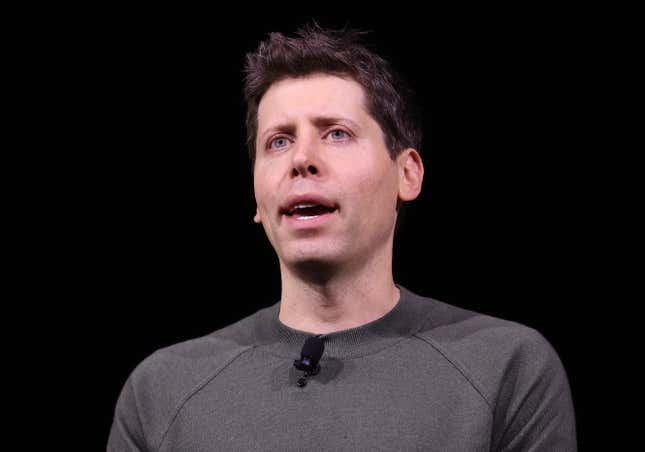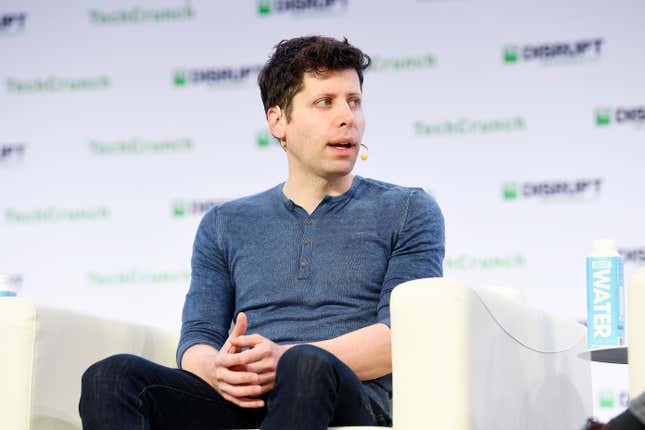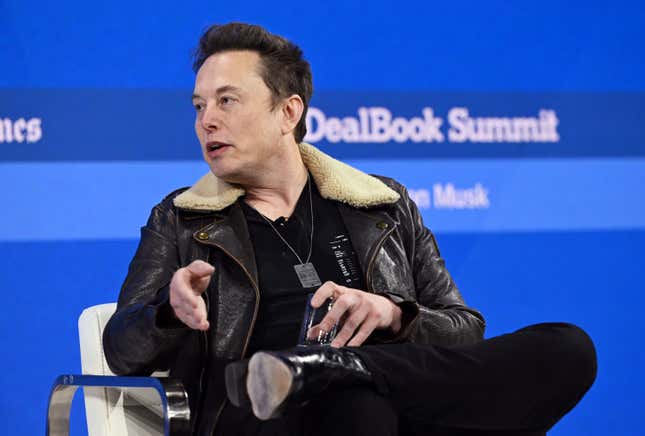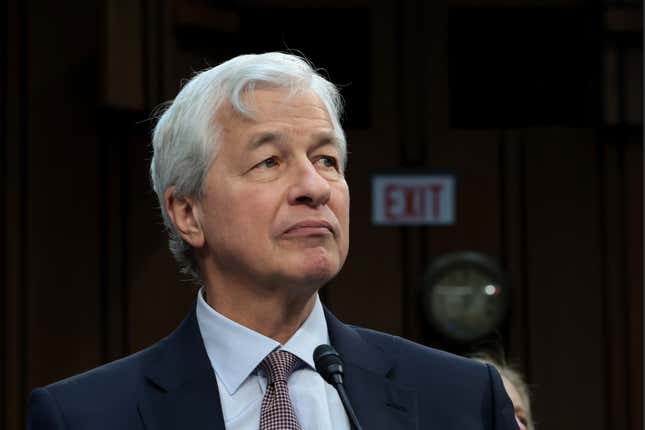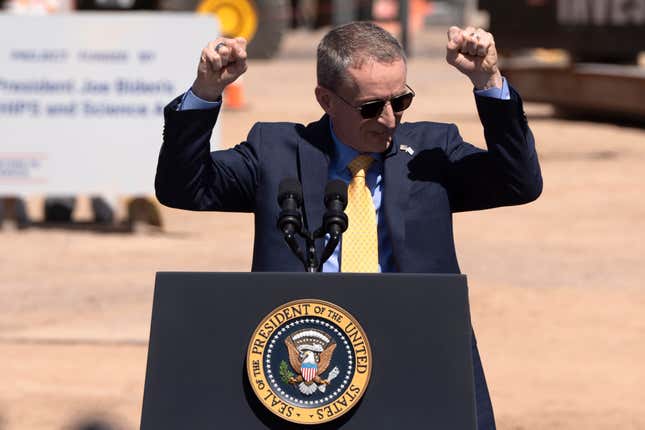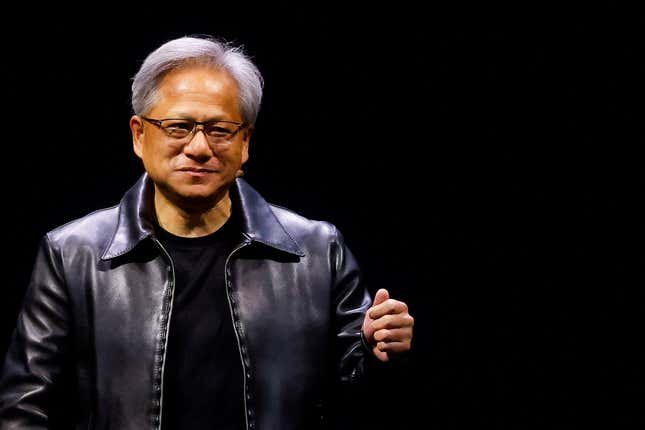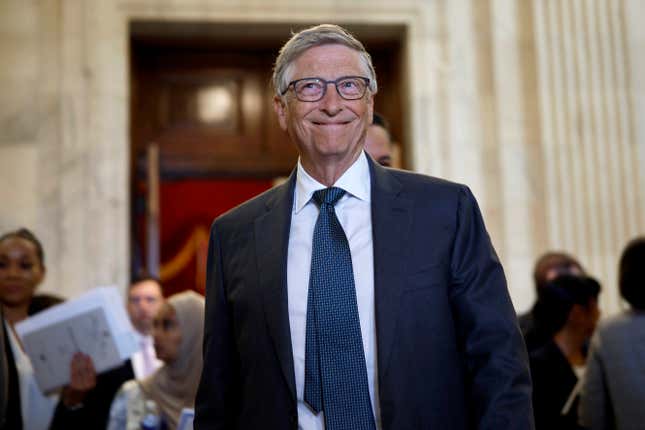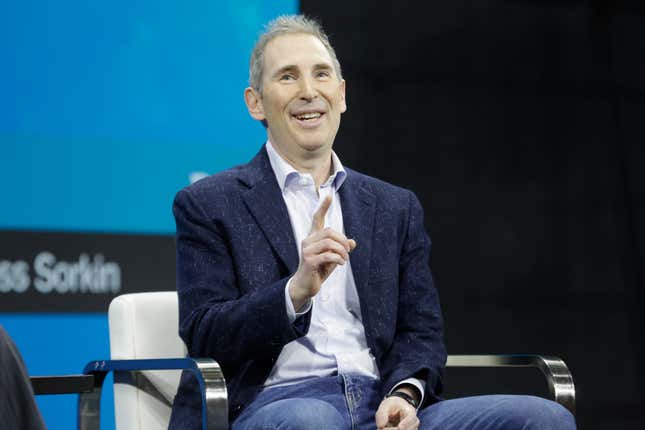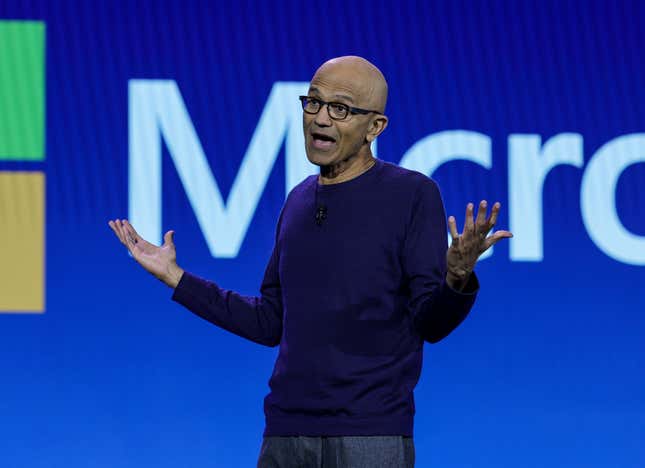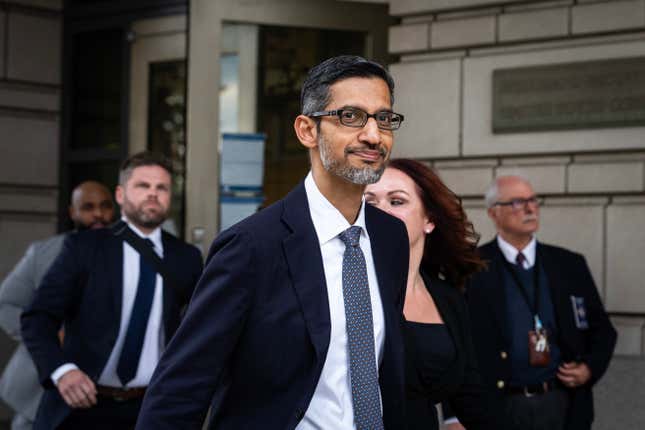Jensen Huang, chief executive of chipmaker Nvidia, which makes the world’s most desired AI hardware, said at the company’s annual tech conference in March that the world needs “bigger GPUs” — or graphics processing units, which power some of the world’s leading AI models like ChatGPT.
When asked about the arrival of artificial general intelligence (AGI) — the point when AI reaches human-level knowledge — Huang said it depends on how AGI is defined, but if it consists of AI passing tests, it could be close.
“If I gave an AI ... every single test that you can possibly imagine, you make that list of tests and put it in front of the computer science industry, and I’m guessing in five years time, we’ll do well on every single one,” Huang said at an economic forum at Stanford University.
During a conversation with Oregon State University President Jayathi Murthy, Huang called AI a “new industrial revolution... because an industrial revolution produces something new that was impossible to produce in the past.”
“I believe that artificial intelligence is the technology industry’s single greatest contribution to social elevation, to lift all of the people that have historically been left behind,” Huang said during the conversation.
“Because programming is so hard, the number of people who have benefitted from this, putting it to use for their economic prosperity, has been limited,” Huang said, noting that people who know programming languages have more opportunities.
But with AI, he said, “you essentially have a collaborator with you at all times, essentially have a tutor at all times, and so I think the ability for AI to elevate all of the people left behind is quite extraordinary.”
